-
Historical geographies: Translating times and spaces Journal of Historical Geography (IF 1.3) Pub Date : 2025-05-26
Stephen Legg, Yannan Ding, Federico Ferretti, Karen Morin, André Reyes Novaes -
Fregean Metasemantics Philosophia Mathematica (IF 0.8) Pub Date : 2025-05-23
Ori SimchenHow the semantic significance of numerical discourse gets determined is a metasemantic issue par excellence. At the sub-sentential level, the issue is riddled with difficulties on account of the contested metaphysical status of the subject matter of numerical discourse, i.e., numbers and numerical properties and relations. Setting those difficulties aside, I focus instead on the sentential level, specifically
-
The ‘Orphic Epistemology’ of Experiment: Goethe's Farbenlehre and Plato's Theory of Colors in the Timaeus Foundations of Science (IF 0.9) Pub Date : 2025-05-22
Boris KožnjakThe article demonstrates the historically and philosophically overlooked common phenomenological roots of Goethe’s Farbenlehre and Plato’s theory of color mixture in the Timaeus, as well as the shared epistemological background to Goethe’s and Plato’s abhorrence of the experimental study of natural phenomena, including light and colors, as the ‘torture of nature’, which is the basis of their equally
-
Parallel convergences: Cassirer and Vienna indeterminism European Journal for Philosophy of Science (IF 1.5) Pub Date : 2025-05-15
Marco GiovanelliStöltzner coined the expression ‘Vienna indeterminism’ to describe a philosophical tradition centered on the Viennese physicist Exner, serving as the ‘historical link’ between Mach and Boltzmann, on the one hand, and von Mises and Frank, on the other. During the early 1930s debate on quantum mechanics, there was a ‘rapprochement’ between Vienna indeterminism and Schlick’s work on causality. However
-
Intrinsic Justification for Large Cardinals and Structural Reflection Philosophia Mathematica (IF 0.8) Pub Date : 2025-05-13
Joan Bagaria, Claudio TernulloWe deal with the issue of whether large cardinals are intrinsically justified set-theoretic principles (Intrinsicness Issue). To this end, we review, in a systematic fashion, the abstract principles that have been formulated to motivate them and their mathematical expressions, and assess their intrinsic justifiability. A parallel, but closely linked, issue is whether there exist mathematical principles
-
Neologicism Meets Fiction Philosophia Mathematica (IF 0.8) Pub Date : 2025-05-12
Geoffrey HellmanNeologicism (NL) invokes a “syntactic-priority thesis” (SPT) to derive existence of numbers, etc., from abstraction principles. Innumerable counterexamples to the SPT, however, are seen to arise from fiction, e.g., “Pegasus is (entirely) fictive”. Examination of possible defenses of the SPT leads to just one viable option, based on quasi-modal “in-fiction” operators. This, however, applies just as
-
David Headley Green 1936–2024 Historical Records of Australian Science (IF 0.2) Pub Date : 2025-05-08
A. Lynton Jaques, Gregory M. Yaxley, Simon L. HarleyDavid Headley Green AM, FAA, FRS was an outstanding Australian geologist and world leader in experimental petrology and geochemistry. His research, initially at the Australian National University with A. E. Ringwood, and later at the University of Tasmania, shaped our understanding of the composition of the Earth’s mantle and the origin of the wide spectrum of volcanic rocks erupted in different global
-
A Triptych on Empirical Philosophy of Mathematics. Part III: How? Philosophia Mathematica (IF 0.8) Pub Date : 2025-05-07
Deborah Kant, Benedikt LöweThe International Humanities Council has established a new international research network Diversity of Mathematical Research Cultures & Practices (DMRCP) at the Universität Hamburg. In a tripartite contribution, we outline and discuss the specific philosophical approach that DMRCP seeks to promote for which we use the term ‘empirical philosophy of mathematics’: the contribution is therefore programmatic
-
Michael Robin Raupach 1950–2015 Historical Records of Australian Science (IF 0.2) Pub Date : 2025-04-28
Helen Cleugh, John FinniganFor four decades from the mid 1970s, Dr Michael Robin Raupach (Mike) was recognised around the world as a pre-eminent researcher in the fields of micrometeorology and Earth System science. A scientist who combined a fertile imagination with outstanding analytical and mathematical skill, he played a pivotal role in transforming the way we understand and model interactions between those key components
-
Scientific constitutive abduction European Journal for Philosophy of Science (IF 1.5) Pub Date : 2025-04-26
Ken Aizawa, Drew B. HeadleyAlan Hodgkin and Andrew Huxley used abductive reasoning to draw conclusions about the ionic basis of the action potential. Here we build on that initial proposal. First, we propose that Hodgkin and Huxley’s constitutive abductive reasoning has four features. Second, we argue that Hodgkin and Huxley are not alone in giving such arguments. Tolman, 1948, and Baumgartner, 1960, also gave such arguments
-
Operational equivalence and causal structure European Journal for Philosophy of Science (IF 1.5) Pub Date : 2025-04-26
Gábor Hofer-SzabóIn operational quantum mechanics two measurements are called operationally equivalent if they yield the same distribution of outcomes in every quantum state and hence are represented by the same operator. In this paper, I will show that the ontological models for quantum mechanics and, more generally, for any operational theory sensitively depend on which measurement we choose from the class of operationally
-
Mechanisms and principles: two approaches to scientific generalization European Journal for Philosophy of Science (IF 1.5) Pub Date : 2025-04-25
Yoshinari Yoshida, Alan C. LoveMany philosophers have explored the extensive use of non-universal generalizations in different sciences for inductive and explanatory purposes, analyzing properties such as how widely a generalization holds in space and time. In the present paper, we concentrate on developmental biology to distinguish and characterize two common approaches to scientific generalization—mechanism generalization and
-
New Encounters Between Life and Technology: Simondon and the Case of Synthetic Biology Foundations of Science (IF 0.9) Pub Date : 2025-04-18
Julia Rijssenbeek, Vincent BlokHow to understand new encounters between the living and the technological? Exemplary of such new encounters are the biotechnological creations of synthetic biology, where life and technology are increasingly intertwined in complex and intimate ways. This developing biotechnological field frames its novel entities as ‘artificial life’, ‘living technology’, and ‘biohybrid systems’. While synthetic biology
-
Severyn Marcel (Sever, Sev) Sternhell 1930–2022 Historical Records of Australian Science (IF 0.2) Pub Date : 2025-04-14
Leslie D. FieldSever Sternhell DSc AO FAA FRACI CChem was a prominent figure in Australian organic chemistry, academia and public life for more than forty years. He held the Chair of Organic Chemistry at the University of Sydney from 1977 until his retirement in 1998. He was very influential, not only directly through his science and his leadership in Australian Chemistry, but also indirectly through the graduate
-
Gordon Elliott (Tim) Wall, 11 March 1925–13 July 2023 Historical Records of Australian Science (IF 0.2) Pub Date : 2025-04-14
Gustav LehrerG. E. (Tim) Wall was one of Australia’s leading algebraists, whose work intersected many of the important algebraic themes of his era (roughly 1960–95). This biographical memoir follows his life from his birth in 1925 in Adelaide, through his professional career, mostly at the University of Sydney, giving some details of his family, personal interactions and research.
-
Performative paternalism European Journal for Philosophy of Science (IF 1.5) Pub Date : 2025-04-14
Jakob OrtmannPerformativity of science refers to the phenomenon that the dissemination of scientific conceptualisations can sometimes affect their target systems or referents. A widely held view in the literature is that scientists ought not to deliberately deploy performative models or theories with the aim of eliciting desirable changes in their target systems. This paper has three aims. First, I cast and defend
-
A Criticism of the Argument for the Possibility of Religious Science Theology and Science (IF 0.6) Pub Date : 2025-04-14
Mostafa Taqavi, Maryam Poostforush -
How Should We Understand the Modal Potentialist’s Modality? Philosophia Mathematica (IF 0.8) Pub Date : 2025-04-13
Boaz D LaanModal potentialism argues that mathematics has a generative nature, and aims to formalise mathematics accordingly using quantified modal logic. This paper shows that Øystein Linnebo’s approach to modal potentialism in his book Thin Objects is incoherent. In particular, he is committed to the legitimacy of introducing a primitive modal predicate of formulae. However, as with the semantic paradoxes,
-
Probabilistic empiricism European Journal for Philosophy of Science (IF 1.5) Pub Date : 2025-04-12
Quentin Ruyant, Mauricio SuárezModal Empiricism in philosophy of science proposes to understand the possibility of modal knowledge from experience by replacing talk of possible worlds with talk of possible situations, which are coarse-grained, bounded and relative to background conditions. This allows for an induction towards objective necessity, assuming that actual situations are representative of possible ones. The main limitation
-
Kant’s essentialism and mechanism and their relevance for present-day philosophy of psychiatry European Journal for Philosophy of Science (IF 1.5) Pub Date : 2025-04-12
Hein van den BergThis paper aims to evaluate the relevance of Kant’s much discussed essentialism and mechanism for present-day philosophy of psychiatry. Kendler et al. (Psychological Medicine 41(6):1143–1150, 2011) have argued that essentialism is inadequate for conceptualizing psychiatric disorders. In this paper, I develop this argument in detail by highlighting a variety of essentialism that differs from the one
-
The Dichotomy of Opposition Between the Image of Technology and the Pre-Technological Era in Martin Heidegger’s Philosophy of Art Foundations of Science (IF 0.9) Pub Date : 2025-04-11
Qing YaoGlobalization and the digital revolution have forced a rethink of many philosophical works of the 20th century. Among them, Martin Heidegger’s ideas attract special attention. The main purpose of the article is to study the dichotomy of opposition between the image of technology and the pre-technological era in Martin Heidegger’s philosophy of art. Research methods include the possibility of recombination
-
Black archives, white philanthropists: Pan-African worldmaking in the interwar United States Journal of Historical Geography (IF 1.3) Pub Date : 2025-04-11
Jake HodderThis paper examines the development of key Pan-African collections in the United States during the interwar period, a time of heightened Pan-African consciousness among African Americans. The emergence of professionally trained Black curators and the growth of major US philanthropic organisations fostered a concerted effort to archive and document the global Black experience. These collections, housed
-
Impacts of the CSIRO climate modelling program Historical Records of Australian Science (IF 0.2) Pub Date : 2025-04-08
Ian SmithThe role of climate modelling groups in the development of international agreements that aim to assess future climatic risks and limit greenhouse gas concentrations is not well recognised. It is arguable that no such agreements would have been possible without carefully designed and managed research programs that provided the data upon which these risks and thus, decisions were made. Many groups contributed
-
Setting priorities for publicly funded research: the CSIRO priorities method Historical Records of Australian Science (IF 0.2) Pub Date : 2025-04-07
Garrett Upstill, Thomas H. SpurlingThe CSIRO Priorities Method is a way to rank and display research priorities for publicly funded research. This paper describes the development and evolution of the method that was employed in CSIRO throughout the 1990s and, since that time, in several other research organisations in Asia and Europe. It comprises three elements: a framework, a process, and a results screen, and has been used for priority
-
Grounded empiricism European Journal for Philosophy of Science (IF 1.5) Pub Date : 2025-04-07
Ioannis VotsisEmpiricism has a long and venerable history. Aristotle, the Epicureans, Sextus Empiricus, Bacon, Locke, Hume, Mill, Mach and the Logical Empiricists, among others, represent a long line of historically influential empiricists who, one way or another, placed an emphasis on knowledge gained through the senses. In recent times the most highly articulated and influential edition of empiricism is undoubtedly
-
The place of explanation in scientific inquiry: Inference to the best explanation vs inference to the only explanation European Journal for Philosophy of Science (IF 1.5) Pub Date : 2025-04-02
James WoodwardThis paper investigates the status of inference to the best explanation (IBE), in contrast to inference to the only explanation (IOE) against the background of Woodward's what-if-things- had-been-different (w) account of explanation. It argues that IBE is not a defensible form of inference. By contrast IOE is defensible and objections to its use (e.g., on the basis of claims about underdetermination)
-
Inference to the Best Explanation as a Form of Non-Deductive Reasoning in Mathematics Philosophia Mathematica (IF 0.8) Pub Date : 2025-04-02
Marc LangeThis paper proposes that mathematicians routinely use inference to the best explanation (IBE) to confirm their conjectures. Mathematicians can justly reason that the ‘best explanation’ of some mathematical evidence they possess would be a proof of it that likewise proves a given conjecture. By IBE, the evidence thereby confirms that such an as-yet-undiscovered proof exists and that the conjecture holds
-
Tawaqquf and Adamic Exceptionalism: Silver Bullet or Optical Illusion? Theology and Science (IF 0.6) Pub Date : 2025-04-02
Stefano Bigliardi -
Epistemic niche construction and non-epistemic values: the case of 19th century craniology European Journal for Philosophy of Science (IF 1.5) Pub Date : 2025-04-01
Matteo De Benedetto, Michele LuchettiIn this paper, we will focus on a specific way in which non-epistemic values can influence scientific inquiry, i.e., how they affect the way in which members of a scientific community apply epistemic values. We will first introduce the concept of epistemic niche construction in science, that is, the idea that the epistemic commitments underlying the practice of a scientific community result from a
-
A Potentialist Perspective on Intuitionistic Analysis Philosophia Mathematica (IF 0.8) Pub Date : 2025-03-31
Ethan BrauerFree choice sequences play a key role in the Brouwerian continuum. Using recent modal analysis of potential infinity, we can make sense of free choice sequences as potentially infinite sequences of natural numbers without adopting Brouwer’s distinctive idealistic metaphysics. This provides classicists with a means to make sense of intuitionistic ideas from their own classical perspective. I develop
-
Beyond Two Books: Teaching Science and Religion for Digital Citizens Theology and Science (IF 0.6) Pub Date : 2025-03-31
Keenan E. Dungey -
Autonomous Weapons Systems for Policing – A Jewish Ethical Perspective Theology and Science (IF 0.6) Pub Date : 2025-03-27
Mois Navon -
Michael Heim’s Concept of “Metaphysics” of Virtual Worlds. A Proposal of Improving it Foundations of Science (IF 0.9) Pub Date : 2025-03-22
Małgorzata Czarnocka, Mariusz MazurekWe analyze Michael Heim’s significant concept of the metaphysics of virtual worlds and show that his concept does not meet the two basic metatheses of metaphysics understood as ontology. First, Heim defines virtual worlds as knowledge, more specifically as informational equivalents of physical things; and worlds understood in this way are not objects in the ontological sense of the term. Secondly,
-
Islam and Psychedelics: An Essay on the Issues of Permissibility and Medical Utility Theology and Science (IF 0.6) Pub Date : 2025-03-21
Haroon Asghar -
On Questioning the Design of Evolution Theology and Science (IF 0.6) Pub Date : 2025-03-17
E. V. R. Kojonen -
Artificial Vice? Artificial Intelligence and Threats to the Self Theology and Science (IF 0.6) Pub Date : 2025-03-17
Eduardo R. Cruz -
Thriving with stone age minds: evolutionary psychology, Christian faith, and the quest for human flourishing Theology and Science (IF 0.6) Pub Date : 2025-03-17
James A. Van Slyke -
Is Ecstatic Aura a Kind of Religious Experience? Theology and Science (IF 0.6) Pub Date : 2025-03-17
Ziqin Zhou -
-
-
Ethics Lost in Modernity: Reflections on Wittgenstein and Bioethics Theology and Science (IF 0.6) Pub Date : 2025-03-17
C. Clark Carlton -
Exploring Metaphysical Foundations: Avicenna's Insights on Evolution and the Multiverse Theology and Science (IF 0.6) Pub Date : 2025-03-17
Tahereh Jamali, Hamid Faghanpour Azizi, Omid Moazeni -
Points of contact: science, religion, and the search for truth Theology and Science (IF 0.6) Pub Date : 2025-03-17
Greg Cootsona -
Apologetic (Ab)uses of Scientific Concepts: Case of Entropy in the Polish Theological Thought Theology and Science (IF 0.6) Pub Date : 2025-03-17
Paweł Polak, Jacek Rodzeń -
Elucidating and embedding: two functions of how-possibly explanations European Journal for Philosophy of Science (IF 1.5) Pub Date : 2025-03-14
Franziska ReinhardPhilosophers of science have variously tried to characterize how-possibly explanations (HPEs) and distinguish them from how-actually explanations (HAEs). I argue that existing contributions to this debate have failed to pay attention to the different, but complementary, functions possibilities play in scientific explanations. To bring these functions to the fore, I introduce a distinction between what
-
D.GrahamJ.ShipleyGeographers of the Ancient Greek World: Selected Texts in Translation2024Cambridge University PressCambridge1190 pages in two volumes, £220.00 hardback Journal of Historical Geography (IF 1.3) Pub Date : 2025-03-14
José Luis Romanillos -
Intervention and experiment European Journal for Philosophy of Science (IF 1.5) Pub Date : 2025-03-13
Irina MikhalevichThe received view of scientific experimentation holds that science is characterized by experiment and experiment is characterized by active intervention on the system of interest. Although versions of this view are widely held, they have seldom been explicitly defended. The present essay reconstructs and defuses two arguments in defense of the received view: first, that intervention is necessary for
-
Explanatory essentialism and cryptic species European Journal for Philosophy of Science (IF 1.5) Pub Date : 2025-03-12
Milenko LasnibatExplanatory Essentialism (EE) is the view that a property is the essence of a kind because it causally explains the many properties that instances of the kind exhibit. This paper examines an application of EE to biological species, which I call Biological Explanatory Essentialism (BEE). BEE states that a particular biological origin is the essence of a species on the grounds that it causes certain
-
Mining for Water? Underground Sources of Hydraulic Knowledge and Expertise in Early Modern Europe Early Science and Medicine (IF 0.5) Pub Date : 2025-03-12
Davide MartinoFrom Antiquity onwards, the need to keep mines dry has given rise to the development of water-raising machines. In early modern Europe a series of technological innovations, such as suction-lift pumps, were pioneered underground. Mines were an ideal site for hydraulic experimentation for four reasons: the incentive to dig deeper, the availability of capital, the presence of a skilled workforce, and
-
Physiognomy, Complexion, and Ingenuity: the Management of Talent in the Society of Jesus, 1540–1773 Early Science and Medicine (IF 0.5) Pub Date : 2025-03-12
Francisco Malta Romeiras, Luís Campos Ribeiro, Elisa FreiThe Jesuits’ commitment to paperwork and bureaucracy was a distinctive quality of the Society of Jesus since its foundation in 1540. By examining the catalogues produced in Portugal between 1555 and 1754, we argue that this evaluation of the bodily and spiritual qualities of individual Jesuits, especially of their temperament and ingenuity, left a profound mark in the Jesuits’ way of proceeding and
-
Rusty, Suppurated, and Discharged like Sēpía Ink: Scientific Knowledge, Animal Lore, and Colour Classification in Plutarch’s De Sera Num. 26, 565b–d Early Science and Medicine (IF 0.5) Pub Date : 2025-03-12
Daniele MorroneThe theological and eschatological dialogue De sera numinis vindicta (“On the Slowness of the Divinity to Punish”) by Plutarch of Chaeronea (first–second century CE) contains precise references to scientific and technical notions of his time, primarily within analogies and symbolic images. Assuming that understanding these symbolic elements requires an examination of the terminology and concepts that
-
Absolute representations and modern physics European Journal for Philosophy of Science (IF 1.5) Pub Date : 2025-03-11
Caspar Jacobs, James ReadFamously, Adrian Moore has argued that an absolute representation of reality is possible: that it is possible to represent reality from no particular point of view. Moreover, Moore believes that such absolute representations are a desideratum of physics. Recently, however, debates in the philosophy of physics have arisen regarding the apparent impossibility of an absolute representation of certain
-
Relational quantum mechanics is still incompatible with quantum mechanics European Journal for Philosophy of Science (IF 1.5) Pub Date : 2025-03-11
Jay Lawrence, Marcin Markiewicz, Marek ŻukowskiWe showed in a recent article (Lawrence et al. 2023. Quantum, 7, 1015), that relative facts (outcomes), a central concept in Relational Quantum Mechanics, are inconsistent with Quantum Mechanics. We proved this by constructing a Wigner-Friend type sequential measurement scenario on a Greenberger-Horne-Zeilinger (GHZ) state of three qubits, and making the following assumption: “if an interpretation
-
Fundamentals: Ten Keys to Reality Theology and Science (IF 0.6) Pub Date : 2025-03-11
Bruce Wollenberg -
-
Coal, state, and society: Resource-making and state formation in early republican Turkey Journal of Historical Geography (IF 1.3) Pub Date : 2025-03-05
Mehmet EroğluCommercial coal mining in Turkey's Zonguldak region began in the mid-nineteenth century and played a significant role in both the late Ottoman period and, with increasing importance, the subsequent republic. This paper examines the processes through which Zonguldak's coal reserves became the most important national energy resource during the early republican period (1920s–1940s). Building on critical
-
The Caesar-problem Problem Philosophia Mathematica (IF 0.8) Pub Date : 2025-03-04
Francesca Boccuni, Luca ZanettiHume’s Principle (HP) does not determine the truth values of ‘mixed’ identity statements like ‘$ \#F $ = Caesar’. This is the Caesar Problem (CP). Still, neologicists such as Hale and Wright argue that (1) HP is a priori, and (2) HP introduces the pure sortal concept Number. We argue that Neologicism faces a Caesar-problem Problem (CPP): if neologicists solve CP by establishing that ‘$ \#F\neq $ Caesar’
-
Perspectives and meta-perspectives: context versus hierarchy in the epistemology of complex systems European Journal for Philosophy of Science (IF 1.5) Pub Date : 2025-03-03
Ragnar van der MerweFor some post-structuralist complexity theorists, there are no epistemic meta-perspectives from where to judge between different epistemic perspectives toward complex systems. In this paper, I argue that these theorists face a dilemma because they argue against meta-perspectives from just such a meta-perspective. In fact, when we understand two or more different perspectives, we seem to unavoidably
-
Religion and the Technological Future: An Introduction to Biohacking, Artificial Intelligence, and Transhumanism Theology and Science (IF 0.6) Pub Date : 2025-03-03
Chang In Sohn -
Formal consistency of the Principal Principle revisited European Journal for Philosophy of Science (IF 1.5) Pub Date : 2025-03-01
Leszek Wroński, Zalán Gyenis, Mariangela Zoe CocchiaroWe rigorously describe the relation in which a credence function should stand to a set of chance functions in order for these to be compatible in the way mandated by the Principal Principle. This resolves an apparent contradiction in the literature, by means of providing a formal way of combining credences with modest chance functions so that the latter indeed serve as guides for the former. Along


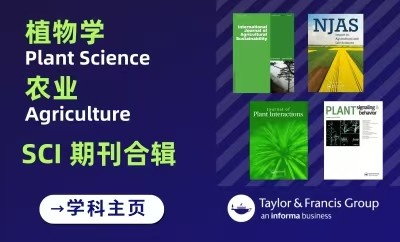













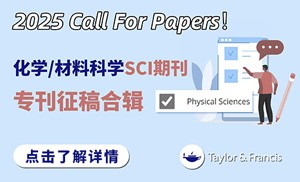
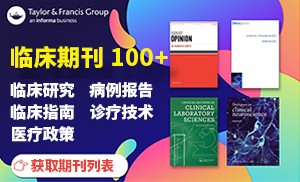

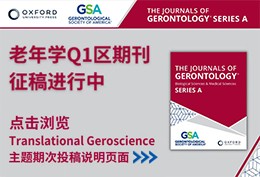
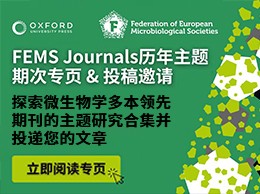

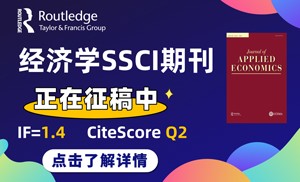




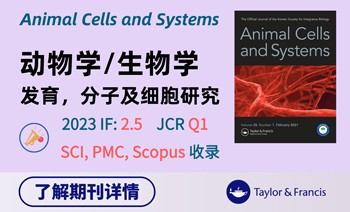

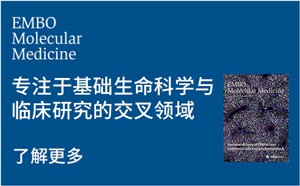
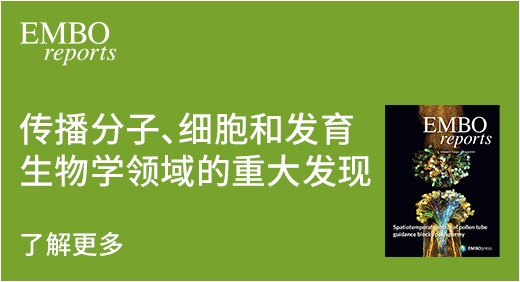
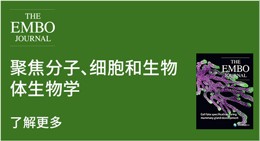


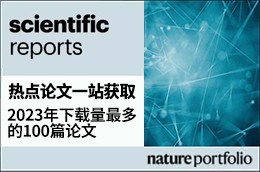















 京公网安备 11010802027423号
京公网安备 11010802027423号